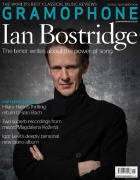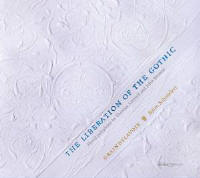Texte paru dans: / Appeared in: |
|
|
Outil de traduction (Très approximatif) |
|
|
Reviewer:
Fabrice Fitch Given the seeming reluctance of continental ensembles to tackle early Tudor polyphony, one must applaud Graindelavoix for taking on a style entirely new to their repertoire. Ironically, two of the works heard here have been recorded before by the Huelgas Ensemble, albeit on different recordings (Thomas Ashwell’s Mass over 10 years ago – Harmonia Mundi, 3/08 – and John Browne’s Stabat mater about five – DHM, 8/13). Those readings scored relatively low on the scale of ‘Van Nevelisms’ (those creative licences that either intrigue or infuriate, depending on one’s viewpoint), and the same goes, broadly speaking, for the ‘Schmelzerisms’ that make up Graindelavoix’s house style. The ‘Corsican goatherd’ brand of vocal timbre is somewhat attenuated if not absent altogether, and the microtonal inflections are less distracting than they have been in the past. If the approach to ornamentation doesn’t always convince, one must still acknowledge their willingness to experiment in this direction, given how few ensembles do. Above all one is drawn to the ensemble’s tone, uncommonly deep, rich, absorbing in itself, and departing significantly from the treble-dominated spectrum that is so prevalent with English-speaking ensembles in this repertory. Perhaps the most striking departure is the noticeably slower tempos. Those who find these strange compared with previous interpretations (particularly of the Browne motets) should note that information regarding absolute tempos is virtually non-existent for this period. The only objective test is the effect that tempo choices have on the music. The slowing-down of details brings out the internal rubato that Schmelzer encourages between his singers, which is particularly effective in the Mass and the Salve regina; it is perhaps less satisfying in the Stabat mater, whose dramatic potential and rhythmic energy seem a touch undersold. But, given how broadly similar performances of this music can seem, a resolutely alternative viewpoint is to be welcomed. |
|




